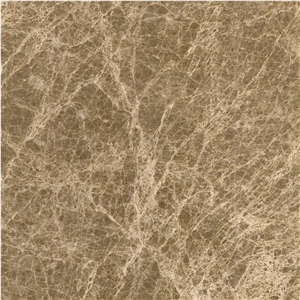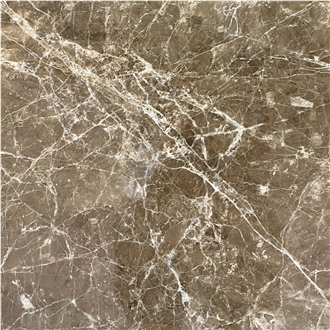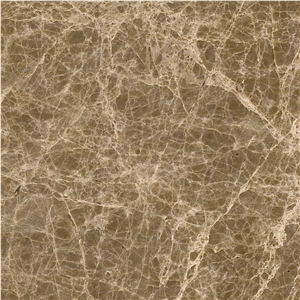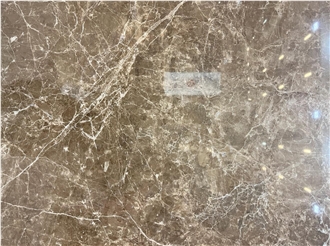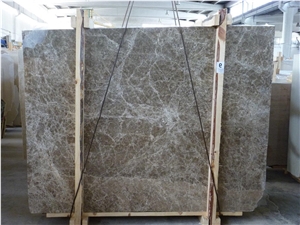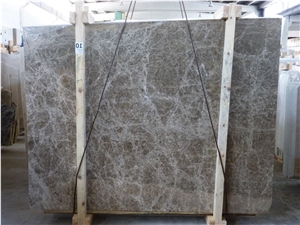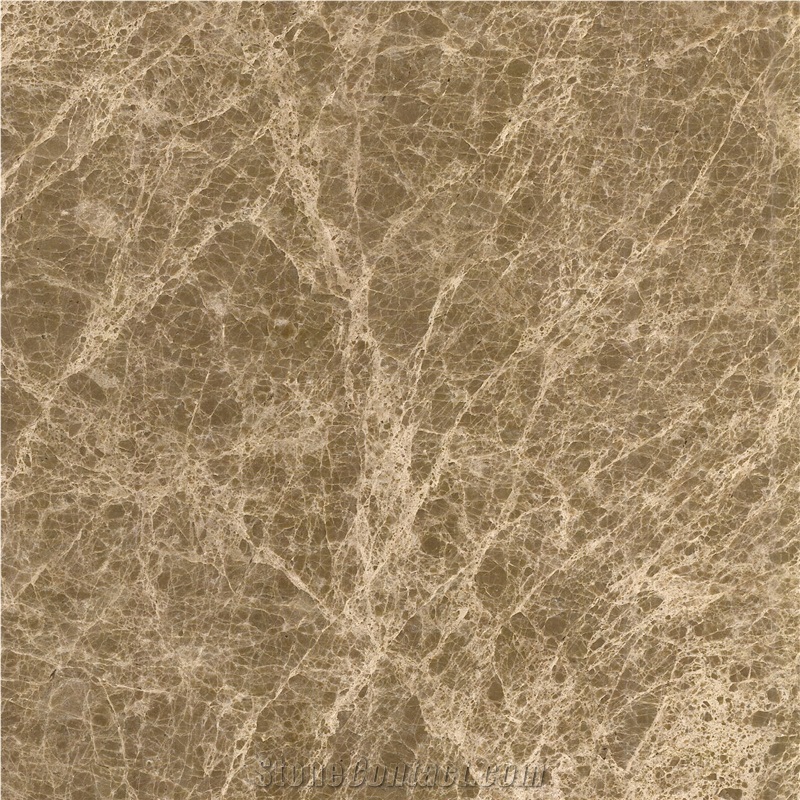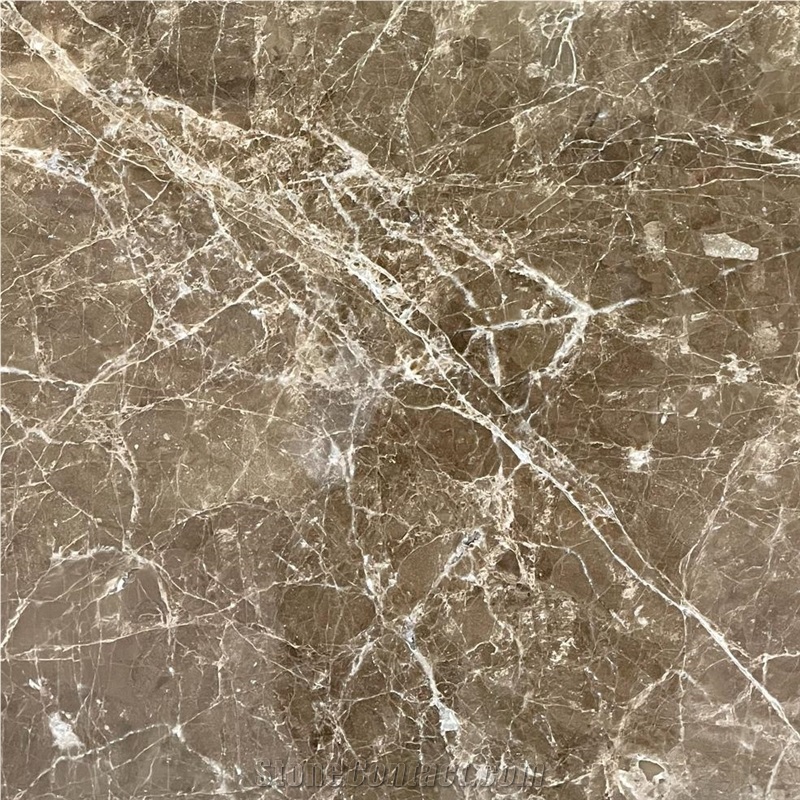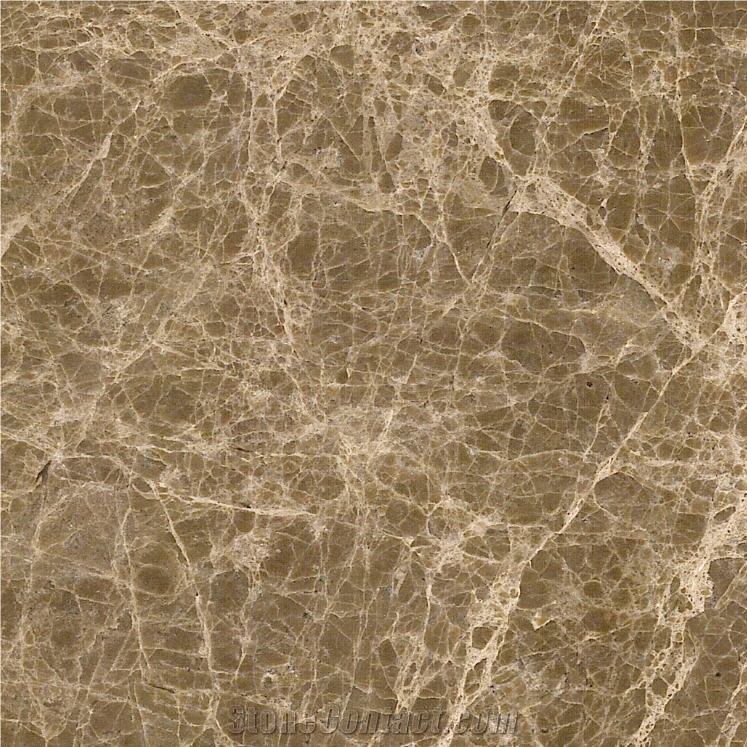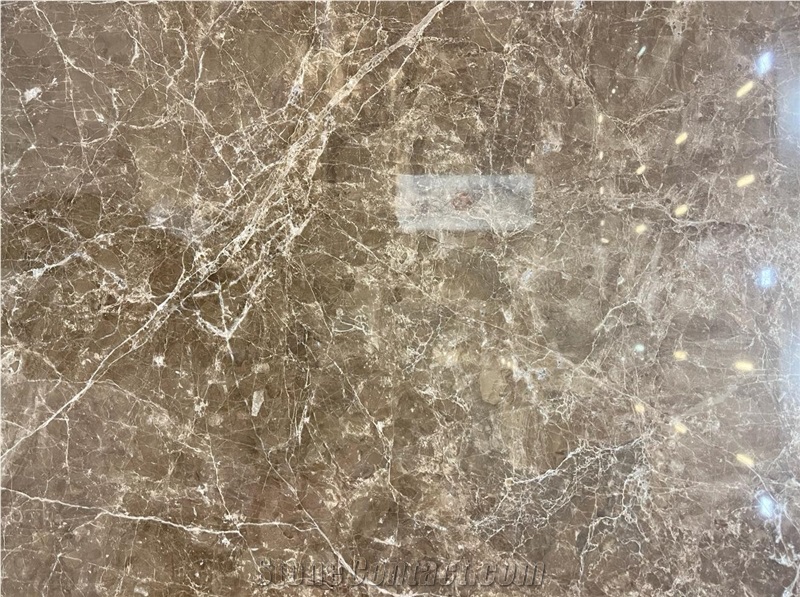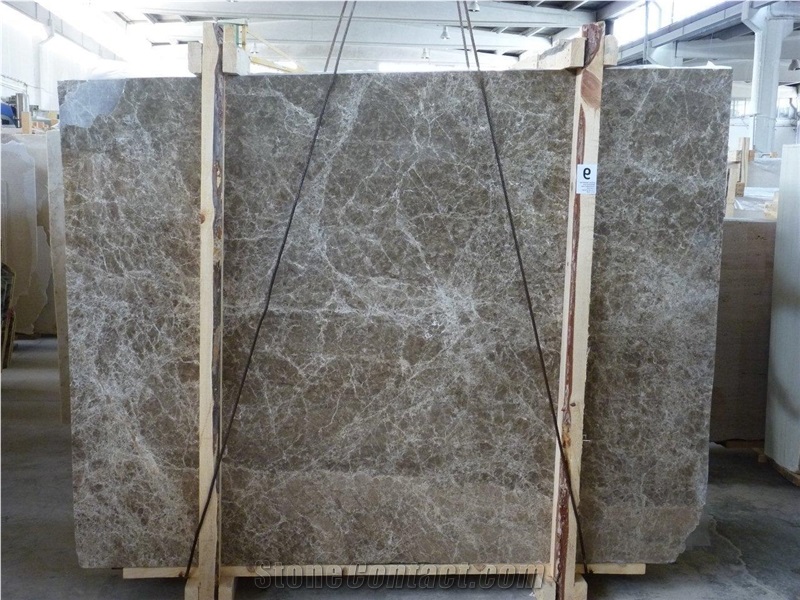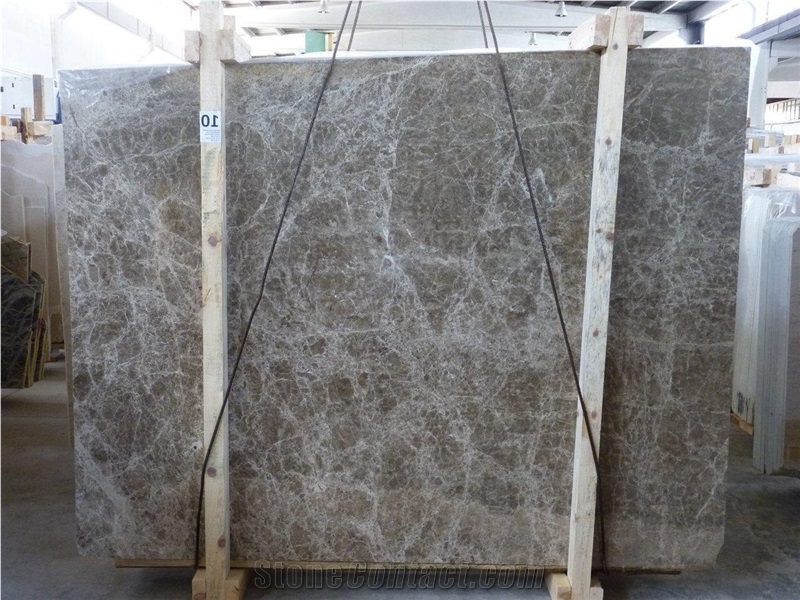Mersin Emperador Marble
 Turkey
(Silifke, Mersin)
Turkey
(Silifke, Mersin)
Mersin Emperador Marble is a captivating natural stone known for its unique blend of colors and stunning features. This marble, quarried in the Silifke region of Mersin, Turkey, offers a rich and elegant appearance that can enhance various interior and architectural designs. Here's a detailed description of Mersin Emperador Marble:
Color Palette: Mersin Emperador Marble is predominantly characterized by its mocha brown base color. This warm and inviting brown hue serves as the canvas for the marble's intricate patterns. Within the brown base color, you'll find beautiful streaks and features that add depth and visual interest to the stone.
Golden Beige-White Streaks: One of the standout features of Mersin Emperador Marble is the presence of golden beige-white streaks that meander across the surface. These streaks create a stunning contrast against the mocha brown background, adding a touch of opulence to the stone. The golden and beige hues introduce a sense of warmth and luxury to any space.
Grey Veins: In addition to the brown and golden streaks, Mersin Emperador Marble may exhibit grey veins of varying intensity. These grey veins create an intricate network that enhances the marble's overall aesthetics. The interplay of brown, golden, and grey tones contributes to the marble's unique and versatile appearance.
Variations: While the mocha brown base color is the hallmark of Mersin Emperador Marble, there can be variations in the intensity of color and the veining patterns. Some variations of this marble may also feature a bluish or greenish tint within the brown base color, adding an unexpected and enchanting dimension to the stone.
Origin: Mersin Emperador Marble is extracted from quarries in the Silifke region of Mersin, Turkey. The geological characteristics of this region contribute to the marble's distinctive color palette and veining patterns.
Applications: This marble is prized for its elegant appearance, making it a preferred choice for a range of applications. It is commonly used for countertops, vanity tops, wall cladding, flooring, and fireplace surrounds. Whether applied in residential or commercial settings, Mersin Emperador Marble adds sophistication and timeless beauty to interiors.
Versatility: The harmonious combination of warm browns, golden beiges, white streaks, and grey veins makes Mersin Emperador Marble versatile in design. It can complement various design styles, from classic and traditional to contemporary and modern.
Maintenance: Like all natural stones, proper sealing and regular maintenance are recommended to preserve the beauty of Mersin Emperador Marble and protect it from potential staining or damage.
In summary, Mersin Emperador Marble is a captivating natural stone known for its mocha brown base color, golden beige-white streaks, and intricate grey veins. Quarried in the Silifke region of Mersin, Turkey, this marble offers a warm and luxurious aesthetic suitable for a wide range of interior and architectural applications. Its unique color palette and versatility make it a prized choice for those seeking to create elegant and inviting spaces.

Is Mersin Emperador Marble mosaic good for shower floor?

Is Mersin Emperador Marble OK in the sun?

What is a standard edge on Mersin Emperador Marble countertop?

Can I use vinegar to clean Mersin Emperador Marble?

Is Mersin Emperador Marble good for high heat?

Can Turkey's Mersin Emperador Marble be used exterior applications in very humid climates?

What is the coefficient of friction of Filled Turkey's Mersin Emperador Marble tiles?

How do I remove water rings from Mersin Emperador Marble countertop?

What is the minimum thickness of Mersin Emperador Marble countertop edge profiles?

What type of edging does Mersin Emperador Marble countertops have?

Can I clean Mersin Emperador Marble kitchen floor with washing up liquid?

Will Mersin Emperador Marble crack with heat?

Is Mersin Emperador Marble UV resistant?

Can Turkey's Mersin Emperador Marble be used in a kitchen?

How do I protect Mersin Emperador Marble from heat?

Is polished Mersin Emperador Marble floor mosaic slippery?

What are the characteristics of Mersin Emperador Marble?

Are there color variations of Turkey's Mersin Emperador Marble?

Can I fix scratches on Mersin Emperador Marble?

What is the difference between a Mersin Emperador Marble baluster and a balustrade?

Is Mersin Emperador Marble good for stairs?

Does Mersin Emperador Marble reflect more heat than wood?

How do I keep Mersin Emperador Marble floors from scratching?

How thick is Turkey's Mersin Emperador Marble slabs?

Is honed Mersin Emperador Marble slippery for stairs?

Is Turkey's Mersin Emperador Marble an expensive stone?

What is the best way to clean Mersin Emperador Marble countertops?

Do Mersin Emperador Marble floors scratch easily?

Can Turkey's Mersin Emperador Marble be used in wall coverings?

Is Mersin Emperador Marble a good choice for a fireplace?
-

 Turkey
Turkey
 8YRDiamond members are premium members on platform, providing members with comprehensive approach to promoting their products, increasing products exposure and investment return to maximize.
8YRDiamond members are premium members on platform, providing members with comprehensive approach to promoting their products, increasing products exposure and investment return to maximize.
 Verified Supplier is for prove company authenticity,including business license,trade license and effective office space,to enhance buyers' trust to suppliers and their products, reducing communication costs.
Verified Supplier is for prove company authenticity,including business license,trade license and effective office space,to enhance buyers' trust to suppliers and their products, reducing communication costs.
Contact Supplier
-

-

-

-

XIAMEN TOP STARS STONE COMPANY LIMITED
 China
China
 10YRDiamond members are premium members on platform, providing members with comprehensive approach to promoting their products, increasing products exposure and investment return to maximize.
10YRDiamond members are premium members on platform, providing members with comprehensive approach to promoting their products, increasing products exposure and investment return to maximize.
 Verified Supplier is for prove company authenticity,including business license,trade license and effective office space,to enhance buyers' trust to suppliers and their products, reducing communication costs.
Verified Supplier is for prove company authenticity,including business license,trade license and effective office space,to enhance buyers' trust to suppliers and their products, reducing communication costs.
Contact Supplier
-

-

Xiamen Dingjun Trading CO., LTD
 China
China
 6YRDiamond members are premium members on platform, providing members with comprehensive approach to promoting their products, increasing products exposure and investment return to maximize.
6YRDiamond members are premium members on platform, providing members with comprehensive approach to promoting their products, increasing products exposure and investment return to maximize.
 Verified Supplier is for prove company authenticity,including business license,trade license and effective office space,to enhance buyers' trust to suppliers and their products, reducing communication costs.
Verified Supplier is for prove company authenticity,including business license,trade license and effective office space,to enhance buyers' trust to suppliers and their products, reducing communication costs.
Contact Supplier
-

-

-

The request includes: 1. surface finished, size 2. quantity required






